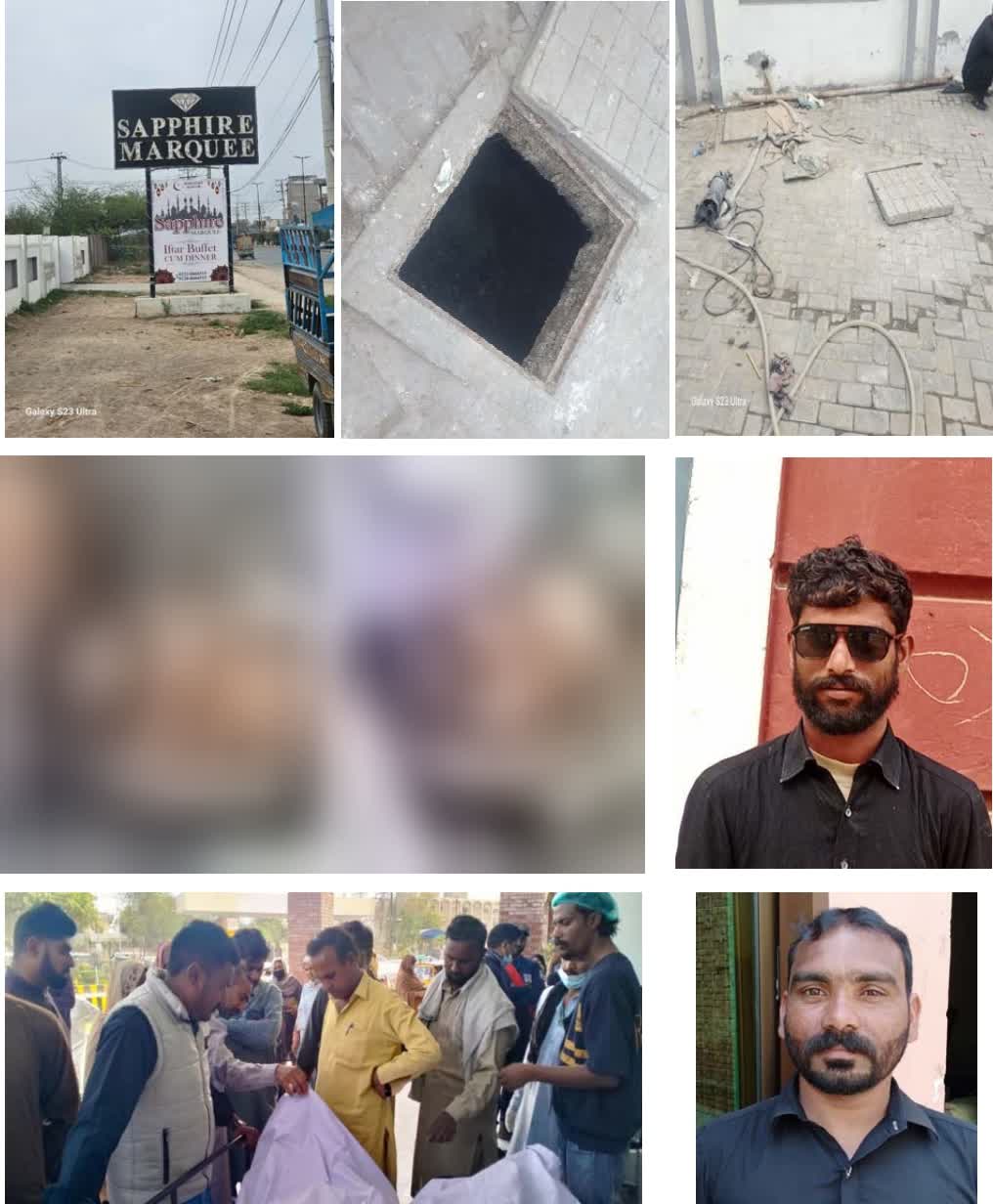News Desk
In Faisalabad, Pakistan, the recent deaths of two young sanitary workers, Asif Masih, 25, and Shan Masih, 28, have reignited conversations around workplace safety and the plight of marginalized laborers. The cousins tragically lost their lives on March 17 while undertaking the hazardous task of cleaning a choked sewage line, a routine duty that turned fatal due to the absence of proper protective gear.
The incident, which occurred in the heart of Punjab province, has sent shockwaves through the community and sparked outrage from human rights groups. Asif and Shan, both belonging to the Christian minority community, represent a demographic disproportionately affected by occupational hazards in Pakistan. Their deaths underscore the perils faced by sanitary workers, who often toil in precarious conditions without adequate safeguards.
According to reports, the cousins entered the sewage line without hygienic kits or protective equipment, leaving them vulnerable to toxic gases that led to suffocation. Their tragic fate serves as a stark reminder of the urgent need for reforms in workplace safety standards and the protection of labor rights.
Human Rights Focus Pakistan (HRFP), a leading advocacy group, swiftly responded to the incident, condemning the deaths as “murders through duty.” Conducting a thorough investigation, HRFP highlighted the systemic discrimination and exploitation faced by sanitary workers, particularly those from impoverished backgrounds.
In response to the tragedy, angry relatives of the victims staged protests, demanding justice for their loved ones. The outcry prompted local authorities to intervene, promising a thorough investigation into the circumstances surrounding the deaths.
Advocate Asad Jamal brings legal expertise to the discourse, emphasizing the critical importance of proper investigation and accountability in cases of occupational fatalities. Jamal’s concern over the lack of postmortem examinations underscores the need for transparent and thorough procedures to determine the exact cause of death and identify instances of negligence.
Furthermore, Jamal’s critique of the absence of basic safety protocols and training for sanitary workers exposes systemic failures in workplace regulations and enforcement. By shedding light on the pressure exerted on victims’ families to accept financial compensation and avoid legal scrutiny.
Jamal also highlights the entrenched power dynamics that perpetuate discrimination and exploitation. His call for a serious attitude from the state reflects a demand for meaningful action to address the root causes of these injustices and prevent further loss of life among vulnerable workers.
Moris Sadiq, an advocate for minority rights, provides invaluable insight into the systemic injustices faced by sanitary workers and their families.
Sadiq underscores the dire financial circumstances that often push these workers to accept hazardous jobs without adequate protection. Revealing that the deceased workers had endured six months without pay, Sadiq highlights the devastating impact of economic deprivation on vulnerable communities.
Additionally, urging authorities to take responsibility for the lives of these marginalized workers, Sadiq emphasizes the urgent need for a serious and proactive approach from the state. He underscores that addressing these issues requires a holistic effort and will from State to alleviate socioeconomic disparities and ensure the safety and dignity of all workers, regardless of their background.
As Pakistan grapples with the aftermath of this tragic incident, it is imperative for policymakers, employers, and civil society stakeholders to collaborate in implementing comprehensive reforms that prioritize the safety and well-being of poor sanitary workers, regardless of their social or economic and religious status.


